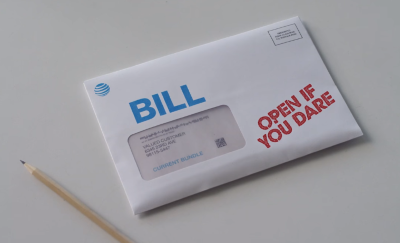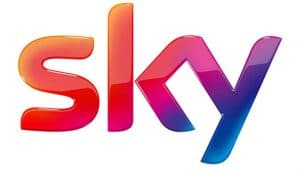 AT&T is responding to its deepening losses of satellite television customers by slashing prices for those threatening to leave by as much as $90 a month and throwing in Visa debit cards worth up to $300 if customers agree to stay.
AT&T is responding to its deepening losses of satellite television customers by slashing prices for those threatening to leave by as much as $90 a month and throwing in Visa debit cards worth up to $300 if customers agree to stay.
AT&T lost at least 346,000 subscribers during the last quarter and is on track to break an all-time record of subscriber losses, primarily attributed to cord-cutting.
When Stop the Cap! readers called to cancel, they shared stories of outrageous discounts available to anyone willing to spend a few minutes on the phone to ask, including slashed pricing, discounted or free channel upgrades, and equipment improvements. Some customers are now paying as little as $5 a month after the discounts were combined.
“It’s ridiculous,” said Stop the Cap! reader Dylan Marshall. “My old promotion recently expired and I called to threaten them with cancellation and they cut my bill by $90 a month for a year, which means my video package is costing me $15 a month. Then they offered me a free year of NFL Sunday Ticket, a $200 Visa debit card, and every premium movie channel available for three months at no charge!”
“I got $70 off my package after my credits expired last summer,” said Sandra Bizek. “It is always such a hassle to call in every year to argue with them, but they were very receptive this year. I almost thought I was being greedy when I also asked them about a gift card, which they usually won’t offer. They put you on hold and then come back and offer one. I got $100, but I know others were offered $200-300, depending on how long they have been a customer.”
It is easiest to score a good promotion if you do not already have one on your account, but it is possible for everyone — even customers still under contract — to get a better deal. One customer negotiated $25 off a month in early 2018. He had to surrender that credit, but in return his new bill will be $85 less.

Are you overpaying for AT&T’s DirecTV?
“They don’t even argue with you anymore,” said Narash, another Stop the Cap! reader. “Within two minutes he gave me $70 off my video package and then he found another $20 credit a month he could add, making my multi-hundred TV channel package about $5 a month. I couldn’t understand the guy very well and I think he thought I was hesitating to accept his offer so he also came up with a $300 Visa gift card out of the blue. I said ‘yes.’ Oh wow.”
Here is how to get your discount:
- Start by calling (978) 890-3027. This is DirecTV’s customer retention center in Massachusetts. If your account is combined with your AT&T wireless phone and you are billed by AT&T, they may have to transfer your call to a different call center. You can also try DirecTV’s general customer assistance number – 1-800-531-5000 and say “cancel service” when the auto-attendant answers. Answer “no” to the question about moving.
- When the representative answers, let them know you are planning to cancel DirecTV because you have a better offer from another provider (try to research an offer from a competitor that would generally interest you and be ready to discuss it). Add that you wanted to give them the opportunity to save your business by lowering your bill and enhancing the services you now get.
- You will be placed on hold as a representative reviews your account and any retention offers you are qualified to receive. Pay careful attention to the length of the discounts and any terms that might lock you into a contract. If you do not like what you hear, thank them for their time and call back. The next deal may be much more lucrative.
Our readers offered some important tips to maximize your savings:
- Print out your current bill so you understand exactly what you are paying for services now. If a representative tries to get you to remove services to lower your bill, let them know you can keep the same services and lower your bill with one of their competitors.
- Explain to the representative that you wish to cancel service because it costs too much and you are considering switching to a provider like YouTube TV or Hulu. Avoid mentioning DirecTV Now, which is also owned by AT&T.
- Do NOT simply accept the first offer made to you. When they try to lock you in, prevaricate. Ask, “is this really the best you can do?” and remind the representative you can create your own package of just the channels you want from one of their online streaming competitors like YouTube TV. You really want the lowest possible price, so could they please check one more time.
- When you are satisfied you have gotten the best possible deal, ask them about the availability of a gift card that you have heard about others getting, to compensate for the months you paid for channels you are not really watching. You may be able to get that as well, typically in amounts ranging from $100-300. But do not make it a dealbreaker and be sure it does not lock you into a long term contract.
- If a representative offers you nothing or seems uninterested in assisting, thank them and hang up and call right back. During high call volumes, regular representatives may be taking cancellation calls instead of customer retention specialists who are trained to offer the best deals to keep your business.
If you called for a better deal, let us know in the comment section what you were offered.


 Subscribe
Subscribe The Federal Communications Commission (FCC) has proposed a new policy allowing cable companies to deduct the fair market value of their obligations to serve the public interest from franchise fee payments to towns and cities.
The Federal Communications Commission (FCC) has proposed a new policy allowing cable companies to deduct the fair market value of their obligations to serve the public interest from franchise fee payments to towns and cities.

 Under the FCC’s proposal, Alabama’s Constitution would be violated by allowing cable operators near carte-blanche access to public rights-of-way without fair compensation or permission, the League argued.
Under the FCC’s proposal, Alabama’s Constitution would be violated by allowing cable operators near carte-blanche access to public rights-of-way without fair compensation or permission, the League argued. Philadelphia is joining New York, Chicago, Dallas, Boston, Houston, and Denver as the latest city to get free streaming of local, over-the-air TV stations from an innovative non-profit “digital translator” service.
Philadelphia is joining New York, Chicago, Dallas, Boston, Houston, and Denver as the latest city to get free streaming of local, over-the-air TV stations from an innovative non-profit “digital translator” service. Sinclair Broadcast Group, America’s largest owner of local TV stations, will
Sinclair Broadcast Group, America’s largest owner of local TV stations, will 

 Currently, UK customers subscribing to the full Sky HD package, including the Sky Q set-top box, pay up to $119 a month. In Germany, the smaller “full package” costs $82 a month after promotional pricing expires. Comcast is likely to raise prices significantly over the next few years, possibly reaching $150 a month in the UK and $100 in Germany. In contrast, Netflix is building a giant market share in Europe keeping pricing low. A 4-screen subscription to Netflix currently costs $13 a month in the UK, with Netflix’s new Ultra subscription priced at $19.96 in Germany.
Currently, UK customers subscribing to the full Sky HD package, including the Sky Q set-top box, pay up to $119 a month. In Germany, the smaller “full package” costs $82 a month after promotional pricing expires. Comcast is likely to raise prices significantly over the next few years, possibly reaching $150 a month in the UK and $100 in Germany. In contrast, Netflix is building a giant market share in Europe keeping pricing low. A 4-screen subscription to Netflix currently costs $13 a month in the UK, with Netflix’s new Ultra subscription priced at $19.96 in Germany.